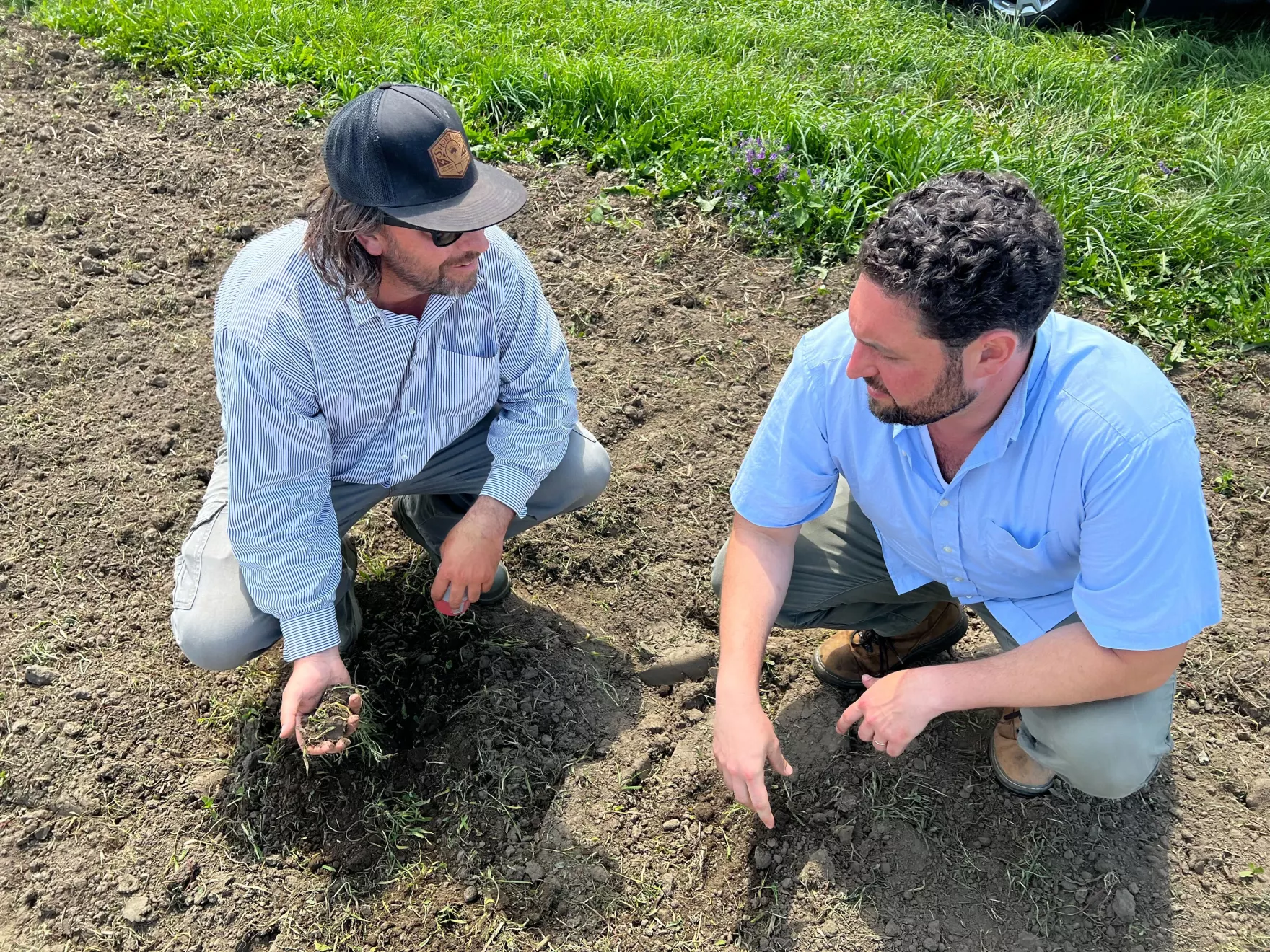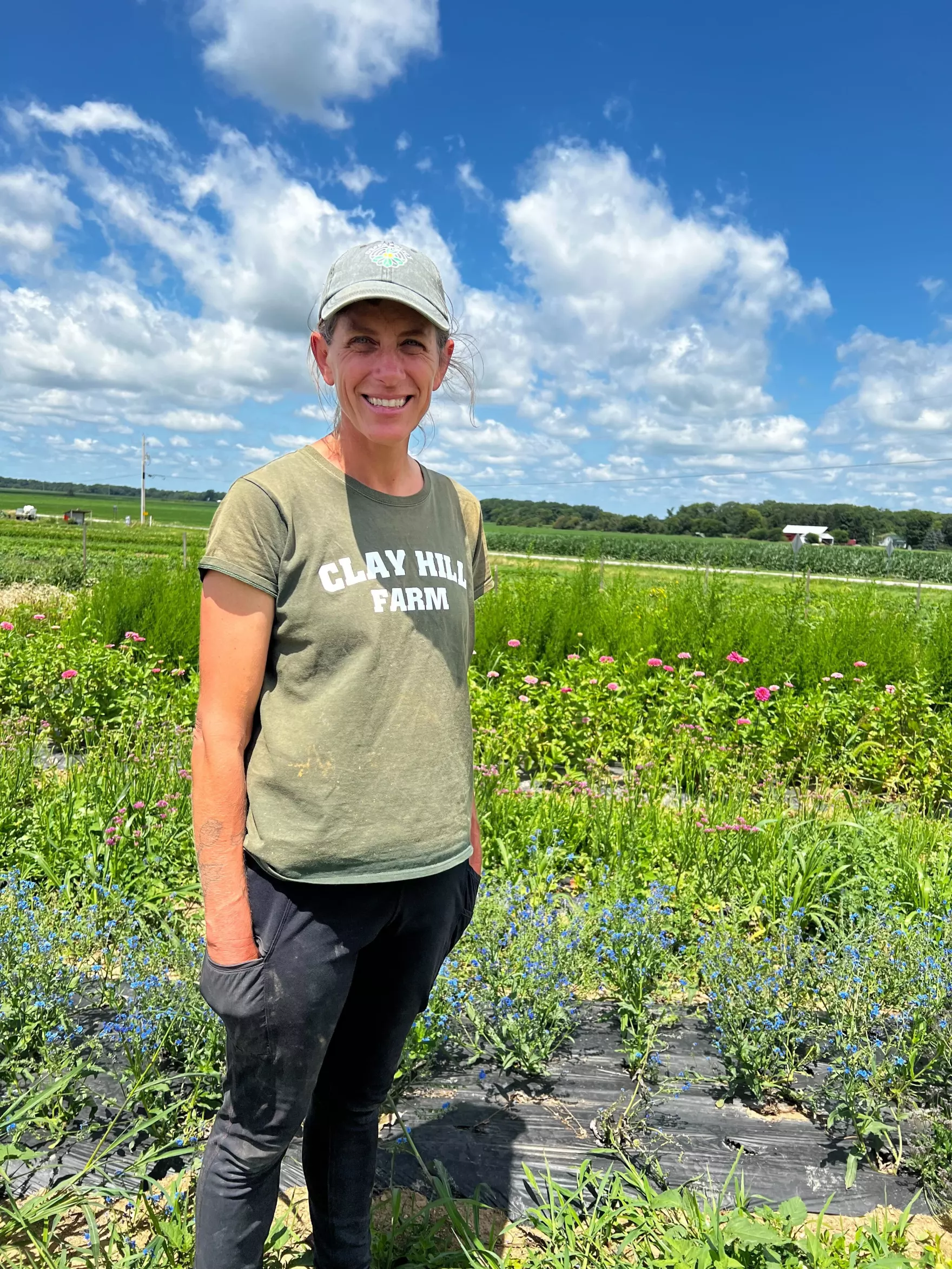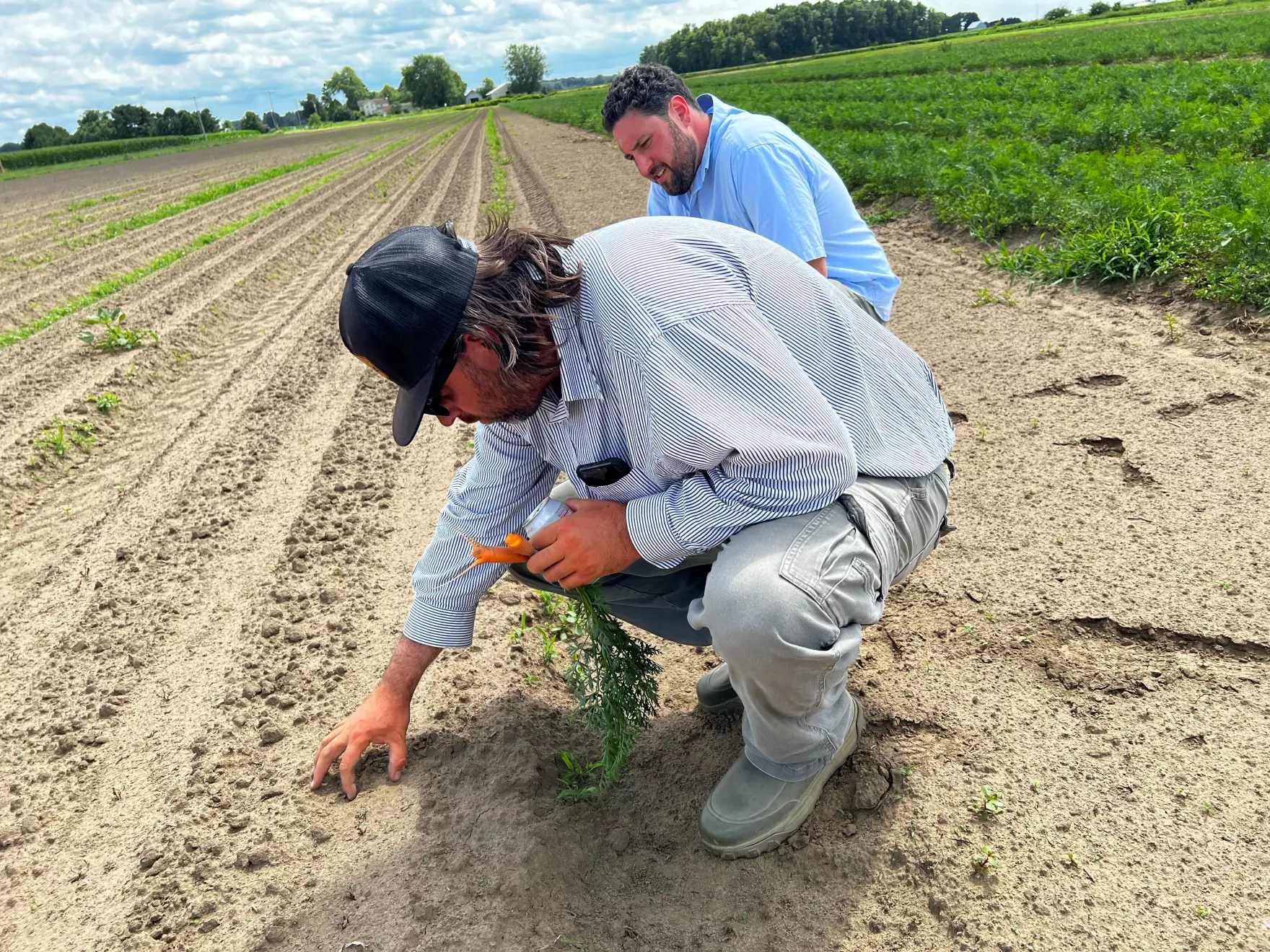By Zaria Johnson, Ideastream Public Media
This story was originally published by Ideastream.
According to Feeding America, one in seven Ohioans is food insecure. This story is part of a “Sound of Us” series in partnership with Second Harvest Food Bank of Lorain County.
For many of Ohio’s organic farmers, acquiring land, purchasing equipment and managing the crops is challenging enough, and the low cost of food grown domestically and internationally makes it difficult for them to compete for customers.
But over the past seven years, the Oberlin Food Hub has found a way to support farmers by connecting them.
Kurt Bench owns Shared Legacy Farm in Elmore, a rural town southeast of Toledo.
“We just finished harvesting, so he’s getting it ready for the next harvest,” he said, watching a worker tending the field. “So today they’re going to plant coriander, Polish amaranth and I think Hakurei beets too.”
Bench sees himself as more than just a farmer.
“Jack of all trades,” he said. “I am an owner, operator, entrepreneur, innovator, friend, son, father, husband. All of the above. I am living my dream.”
More than just farmers markets
And farming is not just a business.
“The farm here is like a catalyst that changes people’s lives – how they eat, how they sit at home and prepare meals and … really return to the community,” Bench said.
He’s building that community in partnership with the Oberlin Food Hub, a cooperative network where local farmers sell their goods directly to more than 100 organizations in Northeast Ohio and Western Pennsylvania, including 40 grocers, 10 restaurants and 12 food banks that distribute fresh, locally grown food to approximately 3,700 food distribution sites.
“We work with the farm to find out what products are available for third-party pickup,” said Dave Sokoll, executive director of the Food Hub. “Then we find a customer who says, ‘I’d like a pallet of beets every week to make juice,’ and then we organize the pickup and sale and take care of the administrative side.”
This helps small farmers because it creates more predictable demand than at the farmers’ markets where they normally sell.

Adam Welly (left) and Dave Sokoll said farms like Wayward Seed Farm in Fremont benefit from the Oberlin Food Hub’s distribution business, which connects small farms with customers. (Zaria Johnson/Ideastream Public Media)
“If I’m just buying things for the farmers market, sometimes it’s a rainy day and not all of my customers come to the market and I come home with perishable food,” Bench explained.
Selling to the Oberlin Food Hub helps reduce food waste and better predict customer needs.
“I can plan better. I know I need so many bunches of carrots or so many pounds of tomatoes, and I know that package isn’t going to go to waste,” Bench said. “It’s not going to be brought home on a truck after a farmers’ market and thrown to the pigs or reused for something else, right? It has a home every week.”
A network for farmers
The Oberlin Food Hub has another mission, Sokoll said.
“We run our distribution business to help small producers get their food to market,” he said. “And perhaps just as importantly, we connect the existing players in the food system so they can work better together,” Sokoll said.
The farmers involved in the food hub turn to each other for help and advice. This is what happened with Kristy Buskirk, who owns Clay Hill Farm in Tiffin with her husband Aaron.
“I had problems with the lettuce,” she said. “We just couldn’t wash and cool it fast enough.”
So she turned to Adam Welly of nearby Wayward Seed Farm in Fremont.

Kristy Buskirk said Oberlin Food Hub has created a network for small farmers to share and get help and advice. (Zaria Johnson/Ideastream Public Media)
“I called Adam and was able to drive it there. His crew really helped us with that move,” said Buskirk. “It might have been very detrimental if I hadn’t had that support.”
With 180 acres and a series of buildings set far from the road along a gravel road, Wayward Seed Farm is large enough to support farmers like Buskirk. It has a packing warehouse and cold storage to store the produce during the off-season.
“We can bring a farm like Kristy’s, which is very small, here and load the food onto a semi-trailer, even if they only have two pallets,” Welly said, opening a huge door to a room filled with fans that keep pallets of onions and other crops fresh. Welly often shares the space with farmers who need help storing, packing and shipping their produce.
“So essentially our network is scale neutral,” he said.
This flexibility has allowed the Food Hub to more than double its contracts with women-owned and people of color-owned farms, generating hundreds of thousands of dollars in revenue each year.
“You can’t force people to buy more sustainable food,” Welly said. “We need to continue to grow and find a broad range of customers to work with. I think that’s how we’ll grow our market.”
Overall, he added, it’s about providing more nutritious organic food to the people of Ohio.
Find more news now at Great Lakes:
A cleaner Cuyahoga River is increasingly threatened by stormwater runoff
Pollution lawsuits at Campbell Soup National Park raise concerns about additional phosphorus sources in Northeast Ohio
Featured image: Adam Welly (front), owner of Wayward Seed Farm in Fremont, is able to support other small farmers using his farm’s packing warehouse and cold storage to store off-season produce. (Zaria Johnson/Ideastream Public Media)

